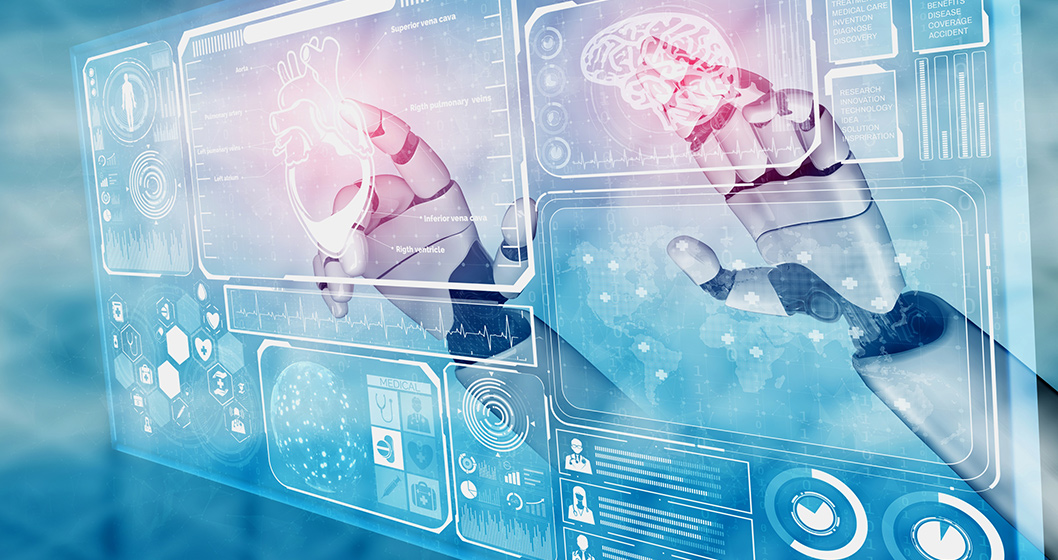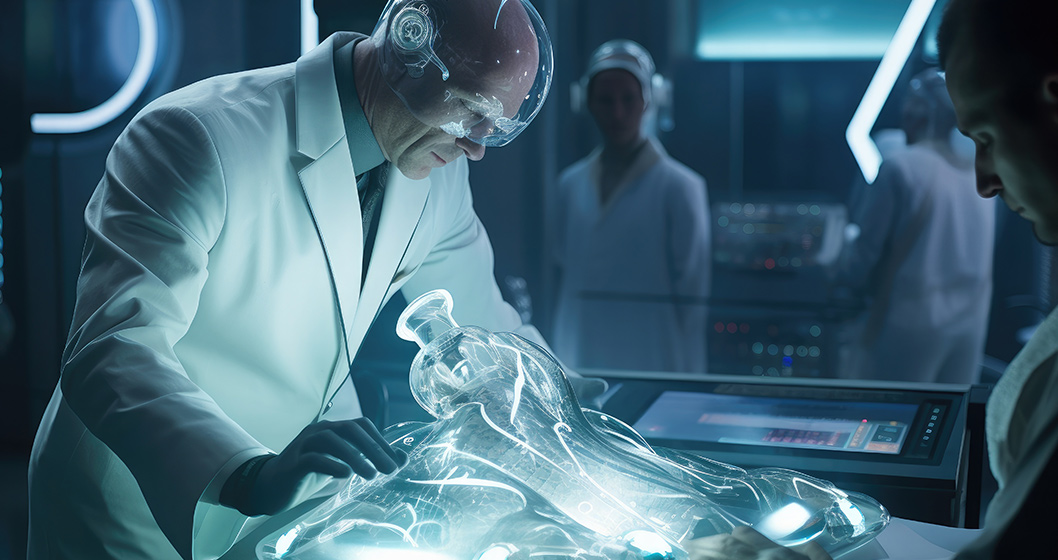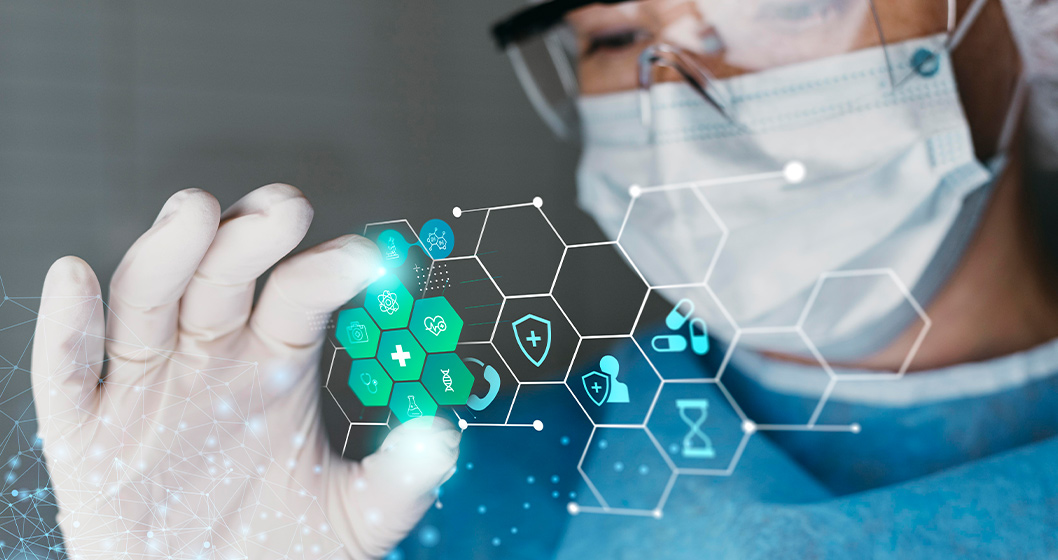AI in Healthcare: Revolutionizing Diagnosis and Treatment
Artificial intelligence is revolutionizing healthcare, transforming the way we diagnose diseases, personalize treatments, and enhance patient care. With AI-powered healthcare solutions, medical professionals can harness cutting-edge technology to detect illnesses earlier, streamline treatment plans, and improve outcomes. From AI in medical diagnosis to AI-driven patient monitoring, the healthcare landscape is evolving at an unprecedented pace.
As AI continues to push the boundaries of what’s possible, let’s explore how it is shaping the future of medicine, making healthcare smarter, faster, and more precise.


AI in Medical Diagnosis: A Game-Changer in Early Detection
- AI for Disease Detection; Spotting Illness Before Symptoms Appear: Imagine a world where diseases are detected before symptoms even arise. Thanks to AI for disease detection, that vision is becoming a reality. AI algorithms analyze vast amounts of medical data, identifying patterns that the human eye might miss. This breakthrough technology is particularly impactful in detecting cancer, heart disease, and neurological disorders at earlier stages, leading to more effective treatments.
- AI in Medical Imaging; Clarity Like Never Before: AI in medical imaging is revolutionizing radiology. Advanced AI-powered tools enhance the accuracy of X-rays, MRIs, and CT scans, enabling doctors to pinpoint abnormalities with incredible precision. These innovations drastically reduce misdiagnoses and help radiologists work more efficiently.
- Predictive Analytics in Healthcare; Forecasting Future Health Risks: By leveraging predictive analytics in healthcare, AI can assess patient history and lifestyle factors to anticipate potential health risks. This allows doctors to implement preventive strategies, keeping patients healthier for longer.
Want to integrate AI-driven diagnostic tools into your healthcare practice? Let’s talk!
AI-Powered Treatment: From Personalized Medicine to Robotic Surgery
AI for Precision Medicine: One Size No Longer Fits All
With AI for precision medicine, treatments are no longer one-size-fits-all. AI analyzes genetic, environmental, and lifestyle data to create highly personalized treatment plans tailored to each patient. This means more effective therapies with fewer side effects.AI in Drug Discovery: Accelerating Innovation
The traditional drug discovery process is time-consuming and expensive, but AI in drug discovery is changing the game. AI-powered algorithms rapidly identify promising drug candidates, significantly reducing research time and costs while bringing life-saving medications to market faster.AI-Assisted Robotic Surgery: Precision at Its Peak
AI-assisted robotic surgery is taking surgical procedures to a whole new level. With the ability to perform minimally invasive operations with unparalleled precision, AI-powered robotic systems reduce recovery time and improve patient outcomes.
AI in Patient Care: Smarter, Safer, and More Accessible Healthcare
AI in Personalized Medicine: A Tailored Approach to Healing
No two patients are alike, and with AI in personalized medicine, treatment can be customized for optimal results. AI assesses genetic profiles and health data to recommend the best course of action, ensuring each patient receives the most effective care.AI-Powered Patient Monitoring: Real-Time Health Insights
Wearable devices and AI-powered sensors enable AI-powered patient monitoring, continuously tracking vital signs and alerting doctors to potential health concerns in real time. This technology is especially crucial for managing chronic conditions and post-operative recovery.Role of AI in Telemedicine: The Future of Virtual Care
The role of AI in telemedicine is expanding rapidly, enabling virtual consultations powered by AI-driven diagnostic tools. Patients can now receive expert medical advice from the comfort of their homes, making healthcare more accessible than ever.


AI in Patient Care: Smarter, Safer, and More Accessible Healthcare
Ethical Concerns in AI-Powered Healthcare: Balancing Progress and Responsibility
As AI takes on a greater role in healthcare, ethical considerations must be addressed. Ethical concerns in AI-powered healthcare include patient data privacy, bias in AI algorithms, and the role of AI in clinical decision-making. Ensuring transparency and fairness will be key to AI’s success in medicine.AI vs. Human Doctors: A Partnership, not a Replacement
The debate over AI vs human doctors: what’s the future? continues, but one thing is clear—AI is not here to replace doctors, but to enhance their capabilities. While AI can analyze data with speed and accuracy, human intuition, empathy, and critical thinking remain irreplaceable.
The AI Revolution in Medicine is Here
From AI-driven innovations in radiology to AI for chronic disease management, artificial intelligence is transforming healthcare as we know it. As AI continues to advance, it will enable earlier diagnoses, more effective treatments, and improved patient care, making the healthcare industry smarter and more efficient.




